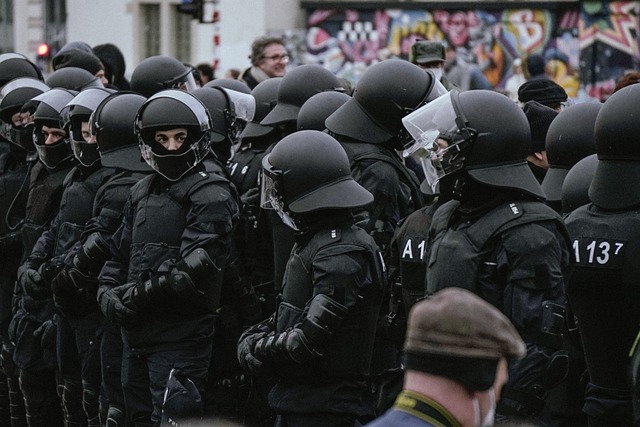Litigation Support Services play a pivotal role in navigating complex legal scenarios, especially during crucial jury selection phases. By leveraging advanced technologies and methodologies, these services enhance efficiency and accuracy, addressing challenges like bias identification and public opinion dynamics. High-stakes cases highlight their value, as they meticulously document investigative findings and free legal teams from logistical burdens, enabling strategic decision-making. Effective jury selection is vital for achieving fair verdicts based on facts presented, impacting clients' perceptions of outcome success. Overcoming Challenges Faced During Jury Selection requires strategic tactics like meticulous profiling, advanced bias assessment tools, and thoughtful voir dire questions to ensure impartiality and diversity in juries, particularly in complex white-collar defense cases where nuanced evidence is key.
“In the intricate landscape of legal proceedings, Litigation Support Services (LSS) play a pivotal role in streamlining efficient case management. This article delves into the fundamental aspect of LSS, particularly focusing on jury selection—a critical phase in civil cases. We explore the common challenges faced during this process, from extensive juror research to managing biases and ensuring diversity. Furthermore, we present strategies to overcome these obstacles, offering a comprehensive guide for legal professionals to optimize their jury selection techniques.”
- Understanding Litigation Support Services: A Foundation for Efficient Legal Processes
- The Role of Jury Selection in Civil Cases: A Critical Phase
- Unveiling the Challenges: Common Hurdles During Jury Preparation
- Strategies to Overcome Barriers: Enhancing the Selection Process
- Case Studies: Success Stories in Overcoming Jury Selection Challenges
Understanding Litigation Support Services: A Foundation for Efficient Legal Processes
Litigation Support Services play a pivotal role in streamlining legal processes, addressing challenges that can arise at various stages, from initial case assessment to final verdict. These services are designed to optimize efficiency and enhance accuracy during what can be intricate and complex proceedings. By employing advanced technologies and methodologies, they facilitate the management of vast amounts of data, aid in expert witness coordination, and provide crucial support during jury selection – a phase often fraught with complexities, from understanding potential biases to gauging public opinion.
This is particularly significant in high-stakes cases involving not just legal but also philanthropic and political communities, where every detail matters. The services ensure that all aspects of the investigative and enforcement process are meticulously documented and presented, contributing to fair and transparent outcomes. They empower legal teams to focus on strategic decision-making rather than logistical hurdles, thereby fostering a more streamlined approach to litigation.
The Role of Jury Selection in Civil Cases: A Critical Phase
Jury selection is a critical phase in civil cases, where challenges faced during this process can significantly impact the outcome. In civil litigation, the goal is to find an impartial jury that can fairly evaluate the evidence and render a verdict based on the facts presented. This process involves sifting through potential jurors to identify biases, prejudices, or conflicts of interest that might affect their ability to make an unbiased decision.
The challenges faced during jury selection are multifaceted. Jurors must be able to set aside personal opinions, experiences, and preconceived notions about the case, including any prior knowledge or involvement in similar situations. Attorneys play a crucial role in this regard, asking detailed questions to uncover potential biases and ensuring a diverse and representative panel. Avoiding indictment or the complete dismissal of all charges depends heavily on the effectiveness of this process, as it influences how corporate and individual clients perceive their chances of achieving a fair outcome.
Unveiling the Challenges: Common Hurdles During Jury Preparation
Unveiling the Challenges: Common Hurdles During Jury Preparation
In the realm of litigation support services, jury preparation stands as a pivotal phase that can significantly influence the outcome of any legal case. However, it’s not without its challenges. One of the primary hurdles is navigating the complexities of juror selection, where attorneys must sift through potential jurors to identify those who possess the impartiality and understanding necessary for rendering a fair verdict. This process involves meticulous questioning to uncover biases, preconceptions, or experiences that might taint their judgment.
Moreover, general criminal defense strategies often require addressing deeply ingrained societal issues and prejudices. Achieving extraordinary results in such scenarios necessitates a profound grasp of cultural nuances and the ability to present compelling arguments that dispel misconceptions. The ultimate goal is to secure a complete dismissal of all charges for the accused, which hinges on effective jury engagement and education.
Strategies to Overcome Barriers: Enhancing the Selection Process
Overcoming barriers during jury selection is paramount for successful litigation support services. Many challenges faced stem from the complexity of modern legal cases and the diversity of potential jurors. For instance, in white-collar defense matters involving intricate financial crimes, finding jurors with both the cognitive capacity to grasp complex concepts and impartiality can be difficult. This process becomes even more daunting in jury trials where a verdict hinges on nuanced interpretations of evidence presented by corporate and individual clients alike.
To enhance the selection process, law firms and legal professionals must employ strategic tactics. These include meticulous juror profiling, utilizing advanced research tools to gauge potential biases, and asking thoughtful questions during voir dire that probe beyond superficial responses. Such strategies aim to uncover hidden biases or prejudices that could skew a trial’s outcome. Additionally, fostering an inclusive environment in the courtroom encourages diverse perspectives among jurors, potentially leading to more balanced and fair decisions in both corporate and individual cases.
Case Studies: Success Stories in Overcoming Jury Selection Challenges
In the complex landscape of litigation, effective jury selection is a crucial strategy often overlooked but vital to achieving extraordinary results for his clients. Case studies from white-collar defense firms highlight successful navigations through challenges faced during this critical phase. By employing innovative tactics and leveraging comprehensive case insights, these legal experts have overcome biases, ensured diversity, and selected juries aligned with the unique nuances of their cases.
Through meticulous research, thorough questionnaires, and adept questioning during voir dire, attorneys have managed to uncover potential prejudices and foster an inclusive courtroom environment. These strategies have proven instrumental in securing fair trials, especially in complex white-collar cases where public perception can significantly impact outcomes. Such success stories underscore the importance of diligent jury selection practices in delivering just verdicts.
Litigation Support Services play a pivotal role in streamlining legal processes, with jury selection being a critical phase. By understanding and addressing the common challenges faced during this stage, such as bias, time constraints, and diverse juror perspectives, law professionals can employ effective strategies to enhance the selection process. Through thoughtful preparation and innovative approaches, as highlighted in our case studies, legal teams can ensure fair and efficient jury composition, ultimately leading to more successful outcomes for all involved.






